I’ve always been a fan of making my own pizza and pasta at home, aiming for that authentic Italian taste.
The secret, I learned, was in using 00 flour, known for its fine texture and how it makes dough soft and stretchy.
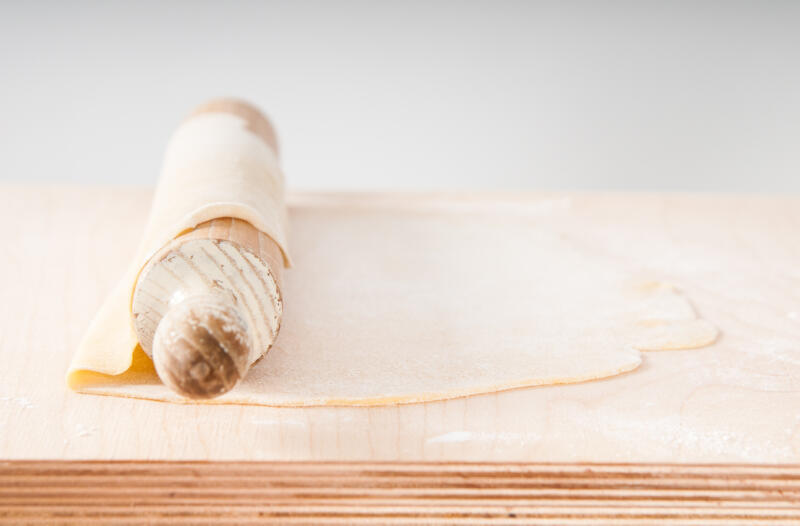
But, there have been times when I reached for my bag of 00 flour only to find it empty. Frustrating, right?
Well, I’ve since discovered that there are plenty of substitutes that can come to the rescue, ensuring my culinary creations remain top-notch even without the coveted 00 flour.
Highlights
- All-Purpose Flour to the Rescue: I found that all-purpose flour is a great stand-in for 00 flour, especially for pizza and pasta. It’s versatile and, when used in a 1:1 ratio, yields delicious results that come pretty close to the original.
- Experiment with Pastry and Bread Flour: Pastry flour offers a tender texture for pastries, while bread flour, with its high gluten content, is perfect for a chewy pizza crust. Both are excellent alternatives, depending on what you’re making.
- Don’t Forget About Semolina: For pasta, semolina flour is my go-to substitute. It adds a unique flavor and color to the dough, making my homemade pasta dishes stand out.
Popular 00 Flour Substitutes
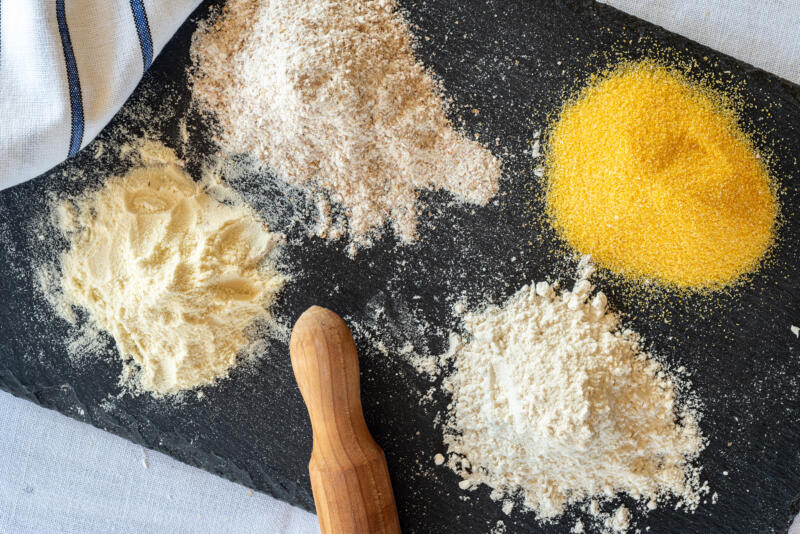
While 00 flour is a fantastic ingredient for many recipes, it’s not always readily available.
Fortunately, there are several substitutes that can be used in its place. Let’s explore a few of the most popular ones.
1. All-Purpose Flour
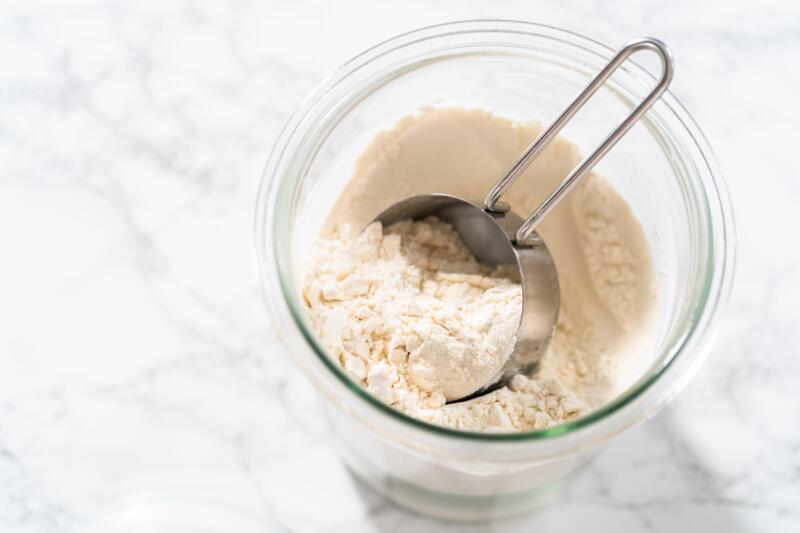
All-purpose flour is a versatile substitute for 00 flour.
As its name suggests, it’s suitable for a wide range of baking and cooking applications, from cakes and cookies to bread, muffins, pasta, and even pizza.
All-purpose flour, while versatile, has a lower protein content and may result in a slightly different texture.
When substituting 00 flour with all-purpose flour, you can generally do so in a 1:1 ratio. This means if your recipe calls for 1 cup of 00 flour, you can replace it with 1 cup of all-purpose flour.
2. Pastry Flour
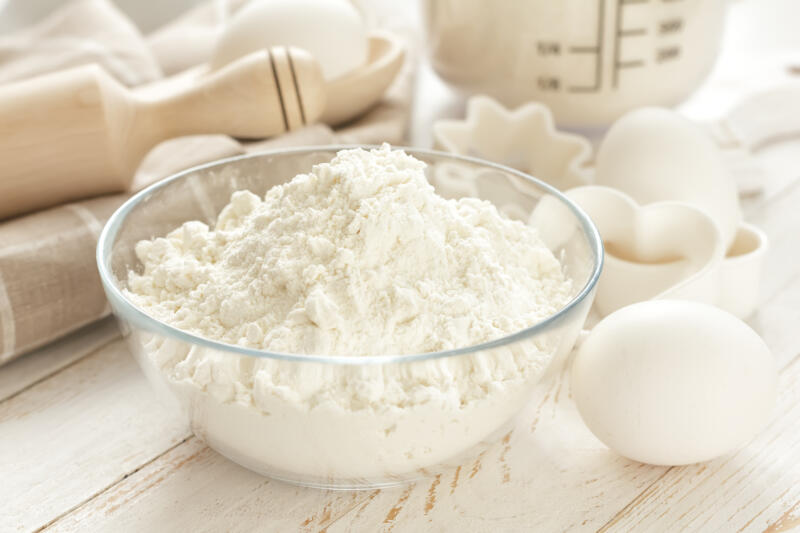
Pastry flour is another excellent substitute for 00 flour.
Often considered the American counterpart of Italian 00 flour, pastry flour is known for its lower gluten levels, which can result in a tender and flaky texture in baked goods.
Pastry flour is typically used for making pastries, tarts, and cookies.
So, if you’re out of 00 flour and have some pastry flour on hand, don’t hesitate to use it in your recipe in a 1:1 ratio.
3. Semolina Flour
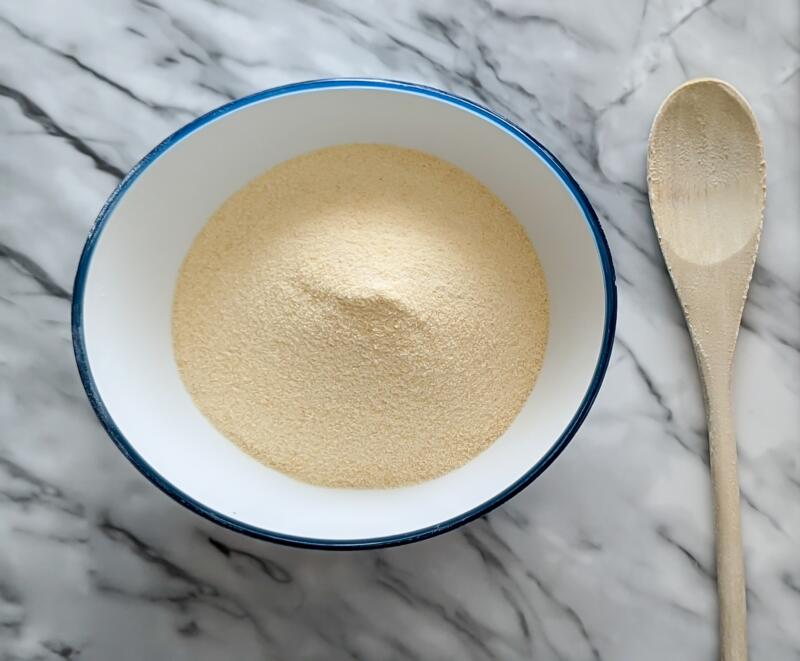
Semolina flour is a popular substitute for 00 flour, particularly in pasta doughs.
This flour is known for its mellow, nutty flavor and bright yellow color, which can add a vibrant touch to your dishes.
Nutritionally, semolina flour is a powerhouse. It’s rich in B vitamins, protein, iron, and fiber, making it a healthy addition to your baking.
Plus, it’s good for digestive health.
When substituting 00 flour with semolina flour, a 1:1 ratio is typically recommended.
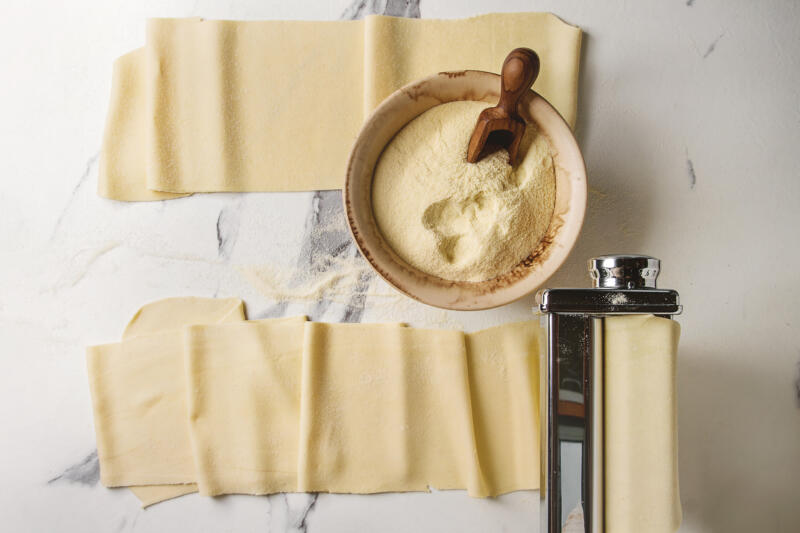
This implies that if your recipe requires 1 cup of 00 flour, you can substitute it with 1 cup of semolina flour.
4. Durum Wheat Flour
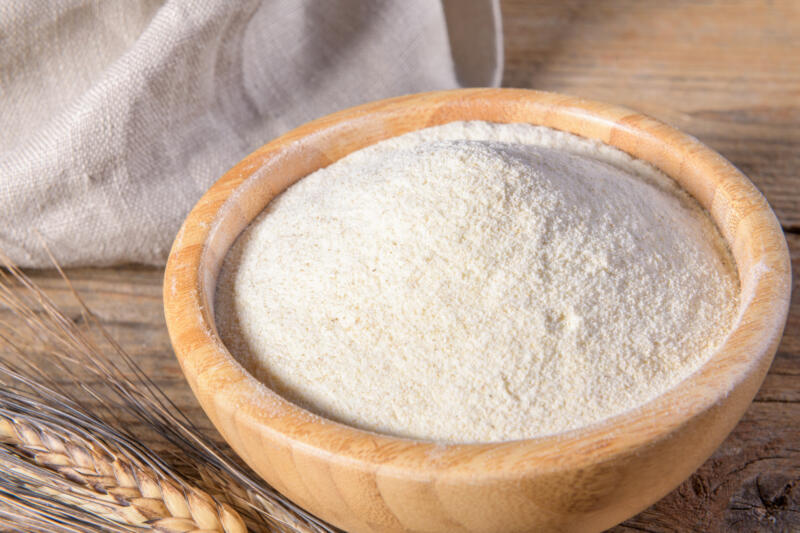
Durum wheat flour is another excellent substitute for 00 flour.
This flour shares many similarities with 00 flour in terms of composition and texture, making it a suitable alternative.
Often utilized in pasta production, durum wheat flour is recognized for its rich protein and gluten levels.
This makes it a great choice for recipes that require a strong, elastic dough, such as bread, pizza, and other savory dishes.
5. Bread Flour
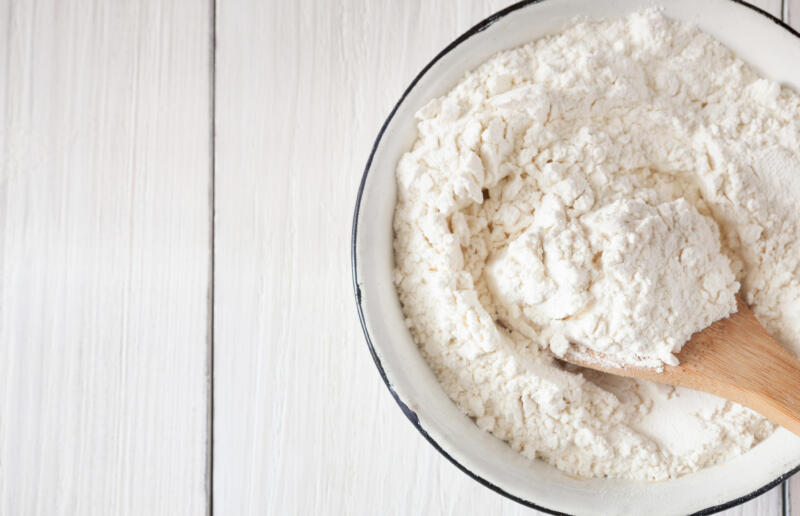
Bread flour is a fantastic substitute for 00 flour, especially when making pizza or bread dough.
This flour has a high gluten content, which gives your dough a nice, chewy crust.
While bread flour is not as finely ground as 00 flour, it can still yield excellent results in your baking.
So, if you’re out of 00 flour and want to substitute it with bread flour, feel free to use it in your recipe in a 1:1 ratio.
6. Whole Wheat Flour
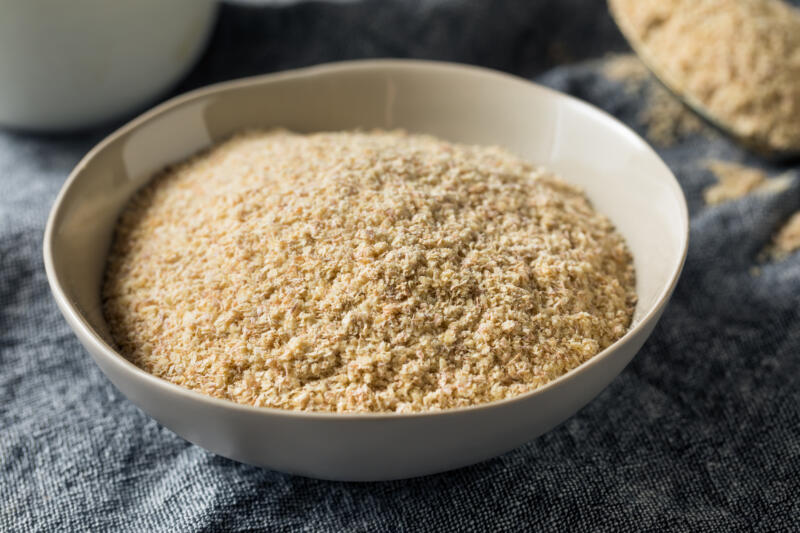
Whole wheat flour is another viable substitute for 00 flour. This flour has a coarser texture and is often used in baking and cooking.
While whole wheat flour is not as fine as 00 flour, resulting in a slightly tougher texture, it can still be used in a variety of recipes, including pasta, cakes, and pizza dough.
To avoid making the final product too dense or tough, the recommendation is to use a combination of whole wheat flour and all-purpose flour.
The all-purpose flour helps to lighten the texture of the whole wheat flour, making it more similar to 00 flour.
The 1:1 ratio means you should use an equal amount of whole wheat flour and all-purpose flour.
For example, if a recipe calls for 2 cups of 00 flour, you could substitute with 1 cup of whole wheat flour and 1 cup of all-purpose flour.
7. Buckwheat Flour
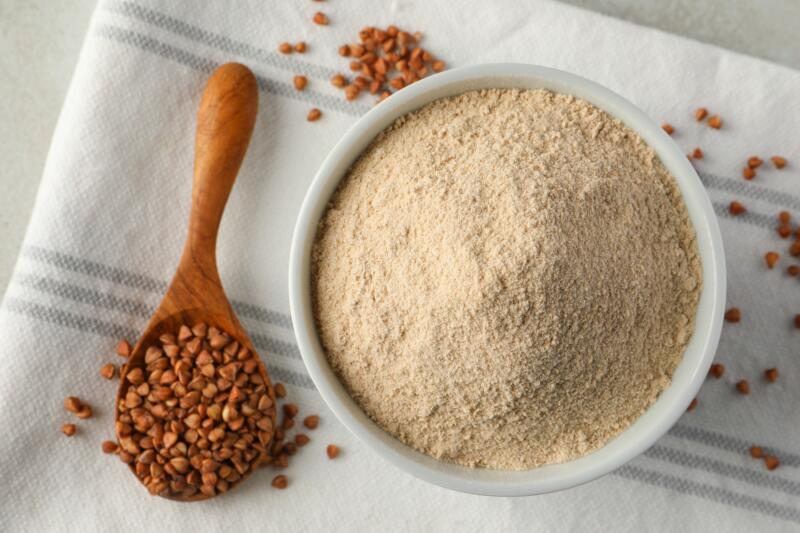
Buckwheat flour is a fantastic substitute for 00 flour, especially for those with gluten sensitivity or celiac disease.
This gluten-free flour not only adds a unique taste to baked products but also boasts a high nutritional value.
Buckwheat flour has a distinct, robust taste that is somewhat earthy and slightly bitter. This unique flavor can add a new dimension to your baked goods.
However, it’s important to note that buckwheat flour does not possess the same composition as 00 flour and can create a tougher dough.
Therefore, it might not be the best choice for recipes that require a delicate, light texture, such as certain types of pastries or pizza dough.
It is, however, often used in commercial pasta brands and can work well in recipes that can accommodate a heartier texture.
When substituting 00 flour with buckwheat flour, you can use the same amount as you would for 00 flour.
8. Plain White Flour
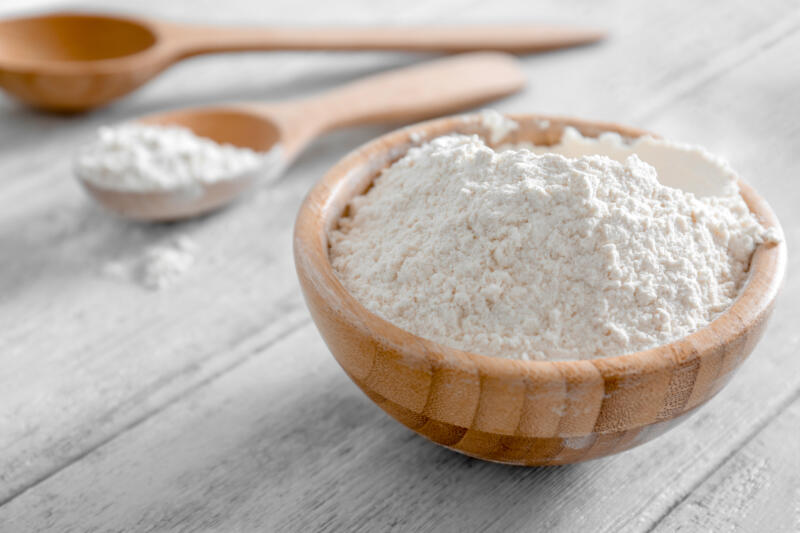
Plain, or regular, white flour is another common substitute for 00 flour.
Made from a combination of soft and hard wheat, plain flour can give cooked pasta a satisfyingly chewy texture.
While plain flour is a popular substitute, it’s worth noting that the dough won’t be as stretchy as when using 00 flour.
This results in a slightly different texture but still yields delicious results.
Differences Between the Various Types of 00 Flours Substitutes
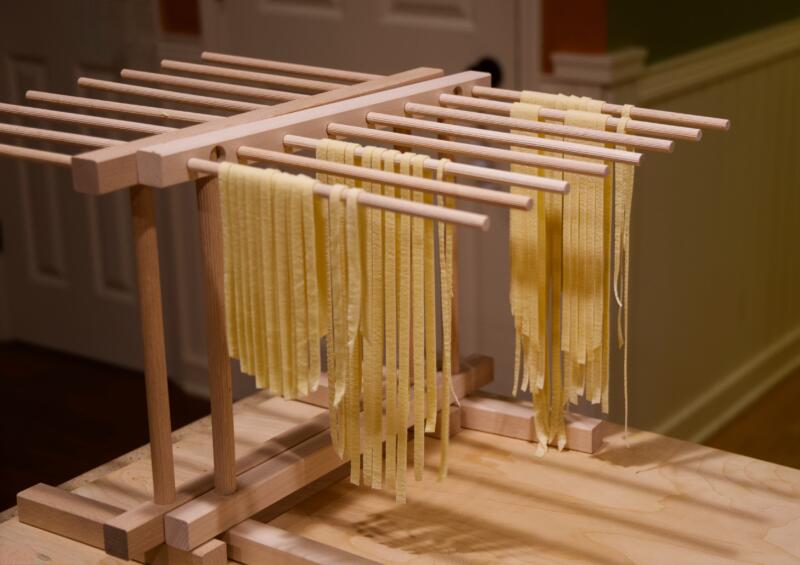
Each substitute for 00 flour brings its unique characteristics to the table, impacting the taste, color, and texture of the final product.
Protein Content
The amount of protein in flour significantly influences the texture and form of baked items.
00 flour, known for its high protein content, yields a strong, elastic dough that’s perfect for pizza and pasta.
On the other hand, substitutes like all-purpose flour and pastry flour have a lower protein content.
This difference in protein content can affect the texture of your baked goods, making them less stretchy and more tender.
Gluten Content

The gluten content in flour is another key factor that affects the texture and structure of your baked goods.
00 flour, for instance, has a gluten content of around 12 percent.
This high gluten content results in a chewy crust with the desired puffs and bubbles that are characteristic of traditional Italian pizza and pasta.
Substitutes for 00 flour, such as all-purpose flour and bread flour, have different gluten contents.
All-purpose flour, for example, has a lower gluten content, which can result in a softer, less chewy texture.
Bread flour, on the other hand, has a high gluten content similar to 00 flour, making it a good substitute for recipes that require a chewy texture.
Gluten-free flours, such as buckwheat flour, have no gluten at all.
This makes them a great option for those with gluten sensitivities or celiac disease, but it also means that the texture of the final product will be different from that made with 00 flour.
Tips for Using Different Substitutes of 00 Flour in Baking and Cooking
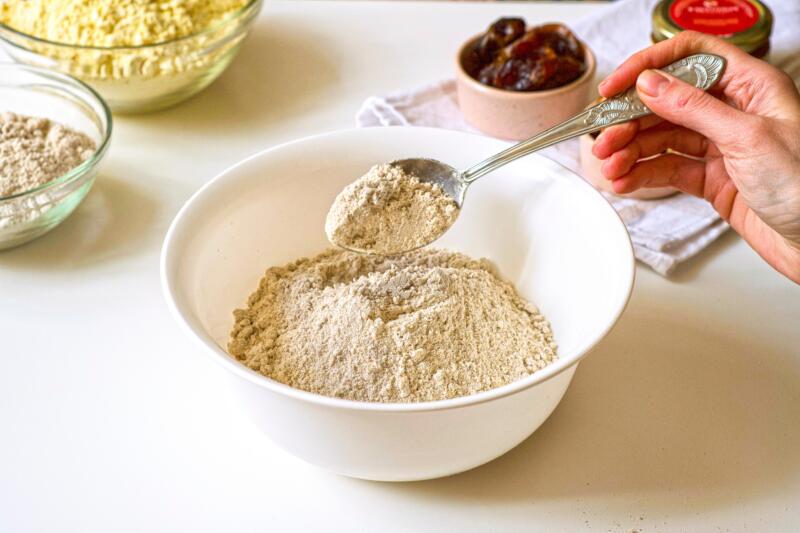
Don’t be afraid to try different substitutes and see what works best for you.
Remember, the key to successful baking and cooking is experimentation!
Using different types of 00 flour substitutes in your baking and cooking can be a fun and rewarding experience.
These substitutes can be used in a variety of recipes, from pizza dough and pasta dough to bread, cookies, and cakes.
When substituting for 00 flour, it’s important to consider the differences in protein and gluten content.
These differences can affect the texture of your baked goods, so you may need to adjust the quantities accordingly.
For example, if you’re using a flour with a lower protein content, you might need to use a bit more flour to achieve the right texture.
Each substitute also comes with its own set of tips for achieving the best results.
For instance, when using all-purpose flour, you might need to adjust the amount of liquid in your recipe, as this flour tends to absorb less water than 00 flour.
When using bread flour, you might need to knead your dough a bit longer to fully develop the gluten.
Closing Thoughts
In this exploration of 00 flour and its substitutes, we’ve uncovered the unique attributes each alternative brings to the table.
Whether you’re aiming for the chewiness of traditional Italian pizza or experimenting with new textures and flavors, there’s a flour substitute tailored to your needs.
The world of baking is vast and filled with possibilities, so don’t hesitate to venture beyond the familiar.
Embrace experimentation, and you might just stumble upon your next signature ingredient. Keep baking and savor every bite!